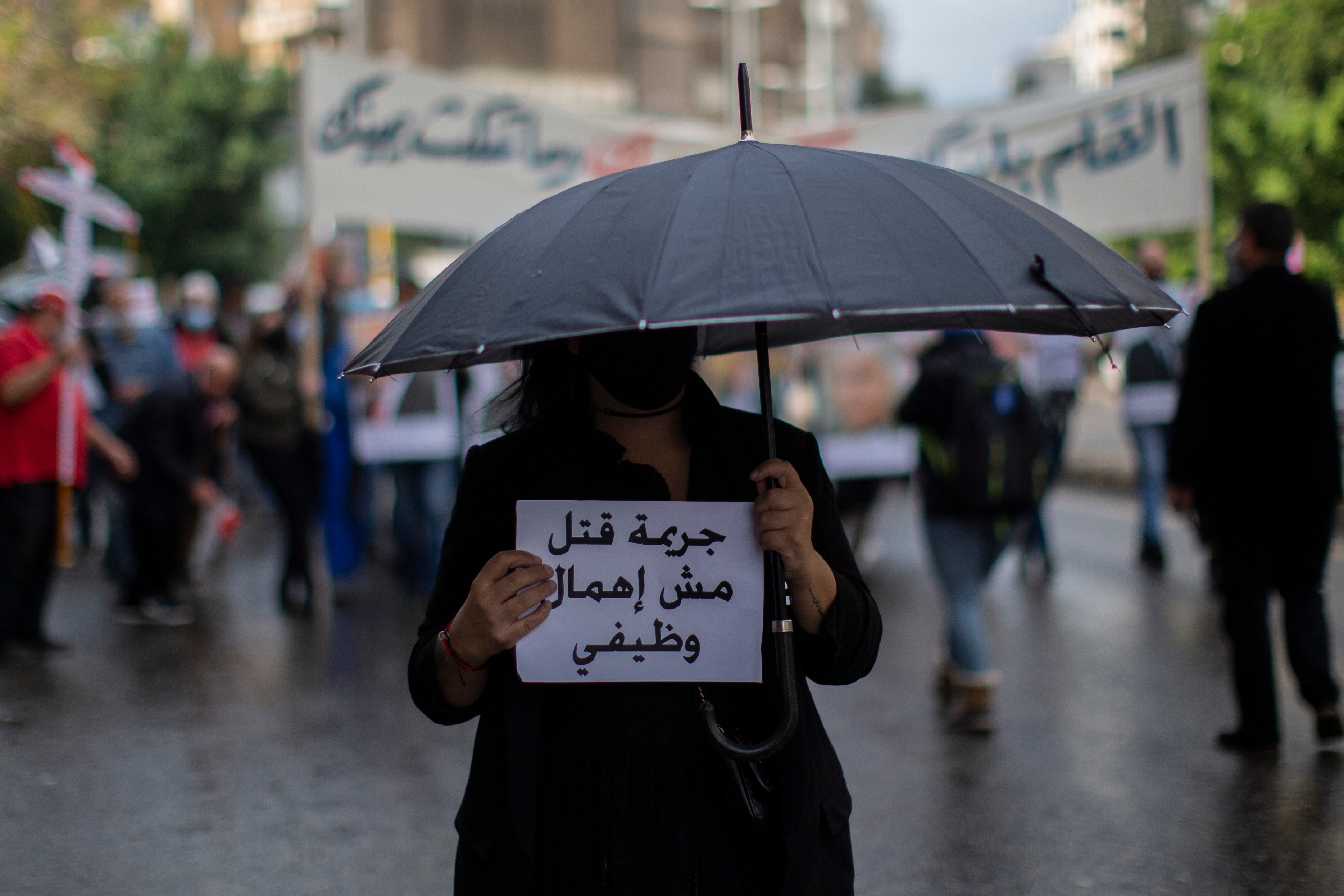World Bank warns of 'prolonged depression' in Lebanon
The World Bank says Lebanon’s economy faces an “arduous and prolonged depression,” with real GPD projected to plunge by nearly 20% because its politicians refuse to implement reforms

Your support helps us to tell the story
From reproductive rights to climate change to Big Tech, The Independent is on the ground when the story is developing. Whether it's investigating the financials of Elon Musk's pro-Trump PAC or producing our latest documentary, 'The A Word', which shines a light on the American women fighting for reproductive rights, we know how important it is to parse out the facts from the messaging.
At such a critical moment in US history, we need reporters on the ground. Your donation allows us to keep sending journalists to speak to both sides of the story.
The Independent is trusted by Americans across the entire political spectrum. And unlike many other quality news outlets, we choose not to lock Americans out of our reporting and analysis with paywalls. We believe quality journalism should be available to everyone, paid for by those who can afford it.
Your support makes all the difference.Lebanon’s economy faces an “arduous and prolonged depression ” with real GPD projected to plunge by nearly 20% because its politicians refuse to implement reforms that would speed up the country’s recovery, the World Bank said Tuesday.
It said Lebanon should quickly form a reform-minded government to urgently carry out the reforms. The crash of the local currency has already led to triple-digit inflation.
The dire projections by the World Bank, including a 19.2% drop in gross domestic product this year alone, come as Lebanon suffers its worst economic and financial crisis in its modern history, posing a threat to the country's stability.
The crisis began a year ago and worsened with the spread of coronavirus and the massive blast at Beirut’s port, which destroyed the facility, killed more than 200 people and caused widespread destruction.
The government resigned days after the Aug. 4, blast, caused by the detonation of nearly 3,000 tons of ammonium nitrates that had been stored at a port warehouse for years. Former Prime Minister Saad Hariri has been trying to form a new government amid political bickering after he won majority backing from legislators to form a new Cabinet in late October.
“Lack of effective policy action by authorities has subjected the economy to an arduous and prolonged depression,” the World Bank report said. “One year into the economic crisis, such policies have not yet been decided, let alone implemented. As a result, Lebanon’s economic crisis is likely to be both deeper and longer than most economic crises.”
The economic and financial crisis that led to harsh capital controls by local banks and the drop of the local currency by nearly 80% is expected to drag more than half of Lebanon’s population into poverty.
Over the past year, tens of thousands of people have lost their jobs, with many leaving to seek opportunities abroad. The migration of skilled workers from the country of 5 million could further hinder any recovery.
“Lack of political consensus on national priorities severely impedes Lebanon’s ability to implement long-term and visionary development policies,” said Saroj Kumar Jha, the World Bank regional director. “A new Government needs to quickly implement a credible macroeconomic stabilization strategy with short-term measures to contain the crisis, as well as medium- to long-term measures to address structural challenges.”
In March, Lebanon defaulted for the first time ever on a payment on its massive debt amid ongoing popular unrest. Lebanon’s debt reached $90 billion or 170% of GDP, making it one of the highest in the world.
International donors have vowed not to give financial aid to Lebanon before major reforms are implemented to fight decades of widespread corruption and mismanagement.
The extent and speed to which aid and investments are mobilized will depend on whether authorities and the parliament can act quickly, the report said.
It said a proposed reform agenda compromises five pillars that include a macroeconomic stabilization program, governance and accountability reforms, infrastructure development and an economic opportunities reform package.
“Without reforms, there can be no sustainable recovery and reconstruction, and the social and economic situation will continue to worsen,” the World Bank warned.